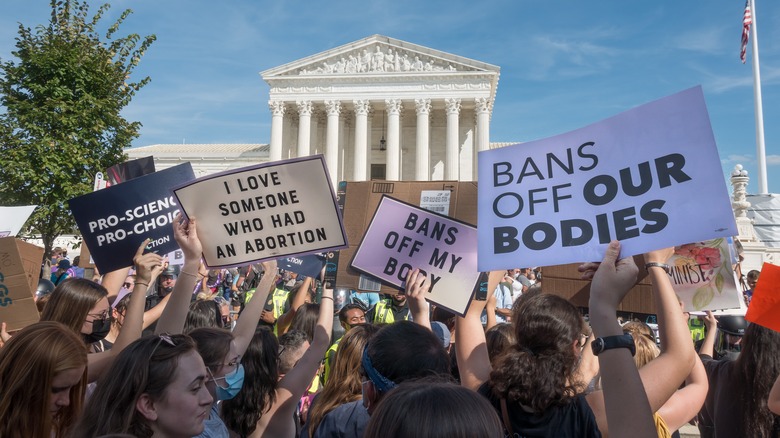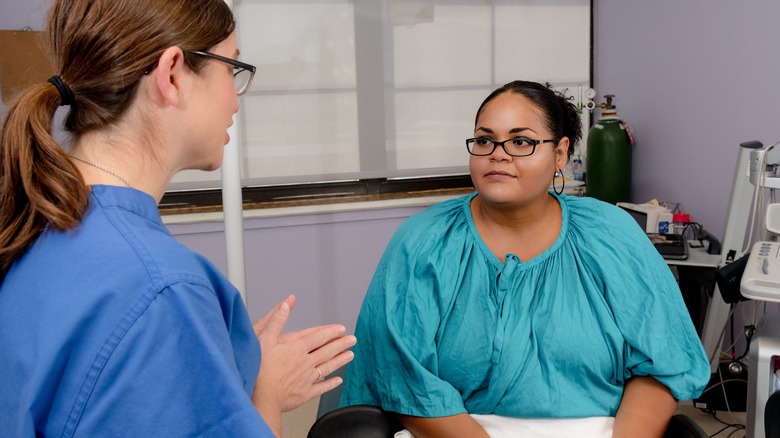The Potential Impacts Of Overturning Roe V. Wade, According To Experts
Documents have been leaked that show the Roe v. Wade ruling is in danger of being overturned by the US Supreme Court, according to Politico. If the landmark federal case that made abortion legal is undone, laws around abortion and reproductive rights would be left to the states individually. The draft opinion piece, which Chief Justice John Roberts called a "betrayal," shows that the Supreme Court has the votes necessary to overturn the ruling, a decision that wasn't expected until June or July (via Healthline).
The Supreme Court is currently deciding on a case in Mississippi called Dobbs v. Jackson Women's Health Organization (via Center for Reproductive Rights). The state of Mississippi is appealing a lower court ruling that declared its ban on abortions past 15 weeks of pregnancy unconstitutional. The state has asked the Supreme Court to not only uphold this ban but to overturn Roe v. Wade altogether, declaring that abortion is not a constitutional right. While this decision isn't expected until later this year, the leak of these new documents indicates that the majority of Supreme Court judges will strike down Roe v. Wade.
How states will respond and who will be affected
If this happens, 26 states are certain or likely to ban abortion as soon as Roe v. Wade is no longer in effect (via Guttmacher Institute). Some states have laws that have been in place since before Roe v. Wade, and they would go back into effect if it's overturned. Others have "trigger laws" that would automatically take effect if it's overturned. If the Supreme Court only weakens or undermines federal protection of abortion, some of these laws may still become enacted. However, 14 states have laws in place that protect abortion rights. Clinics in these states are already anticipating a surge of patients from states where abortion may become banned (via Healthline).
The World Health Organization acknowledged that even if legal abortion is restricted, it won't result in fewer abortions (via Center for Reproductive Rights). Instead, women will access unsafe abortion services, risking their health and their lives. A study showed that women who are denied abortions are 4 times more likely to be living below the poverty line. If Roe v. Wade is overturned, it will largely impact those living in low-income communities. Those living in these areas are disproportionately people of color, who are already struggling to access adequate healthcare (via Healthline).
No legal decision has been made yet. The right to abortion is still protected by the federal government until the Supreme Court votes to overturn Roe v. Wade, so don't cancel any appointments just yet.


